Press Reviews
May 2021
International Media Digest
EU PROMISES MORE ENGAGEMENT WITH THE BALKANS
The Western Balkans entered the agenda of the Foreign Affairs Council of the European Union for the first time in the last two years, with EU Foreign ministers promising more engagement with the area. “The region has a special role in Europe and for Europe. We agreed that the Western Balkans is a region of key geostrategic role for the European Union. Our commitment to the Western Balkans needs to be very visible, and we should leave no doubt in this respect”, said High Representative Josep Borrell. The EU suggested that the commitment will be translated into actions soon, after months of neglect.
The EU plans in the first place to advance on the accession process of Albania and North Macedonia, after many delays, without decoupling both countries in the accession process. European Enlargement Commissioner, Oliver Varhelyi, put forward the topic of decoupling the pathways of Albania and North Macedonia in this process in May, but the idea was rejected both in the Balkans and in Brussels.
The EU integration process of Serbia and Montenegro should also be sped up. At the same time, immediate progress is needed on visa liberalisation for Kosovo. Bosnia and Herzegovina should also use the following months to advance constitutional and electoral reform in order to get closer to the status of candidate country, the EU said.
But “we want to ensure that we have a political engagement with our partners” also on other levels, “from addressing the COVID-19 pandemic and vaccines, economic cooperation, connectivity, how to tackle external influence, reduce disinformation, just to name a few issues”, Borrell added. “We agreed on the principles, we agreed on the basis. […] We are not going to stay two more years without putting on the agenda the Western Balkans. Not even two months”, the High Representative said.
Integrating the Balkan Six in the EU should be a top priority for the Union, Borrell reiterated later. “In addition to the difficult history of the region comes the game of the aspiring ‘new empires’, with Russia and China trying to increase their leverage and weaken the EU”, Borrell warned on his official blog. EU Foreign Ministers expressed their concerns about “losing the region”, and we agreed that when the Western Balkans deliver, we should deliver”, he added. “If we are not careful, we will lose the Western Balkans, that is exactly why we need to keep our commitments to the countries in the region”, German Foreign Minister Heiko Maas confirmed.
However, the constant delays in the integration process are already “undermining the EU credibility”, said Florian Bieber, a professor of southeast European history and politics at Graz University. “There is a genuine sense” the enlargement process “is never going to end”, the analyst said.
G7 WARN AGAINST BORDER CHANGES
As we reported last month, a mysterious non-paper sparked controversy in the Balkans and in Brussels in April, the Development Ministers of the Group of Seven (G7) and the High Representative of the European Union warned that problems in the region could not be resolved through border changes along ethnic lines.
The alleged official document, unsigned but allegedly attributed to the office of the Slovenian Prime Minister Janez Jansa — who said the non-paper is not linked to his government — suggested that Serbia could absorb the entity of Republika Srpska in Bosnia and Herzegovina (BiH).
At the same time, the Croat majority cantons would join Croatia. Albania would unify with Albanian-majority areas in Kosovo and in North Macedonia, while Kosovo’s north, with a majority Serbian population, would gain special self-administration rights.
“Unwarranted speculation about border changes along ethnic lines is no solution to the challenges faced by the region”, the G7 said, warning that “such changes would constitute a threat to regional security”. “We firmly reject any attempt to undermine the territorial integrity of Bosnia and Herzegovina”, the G7 statement noted.
The country’s integrity is at risk, the High Representative in Bosnia and Herzegovina (BiH), Valentin Inzko, warned at the UN Security Council on a separate occasion. According to Inzko, the main risk for Bosnia and Herzegovina comes currently from the attempts of ethnic Serb political leaders to split the country. “BiH remains de facto a frozen conflict with an unfinished peace, where political leaders continue to pursue wartime goals, generate divisive narratives and nationalistic political agendas and speak about dissolution of the state”.
The Group of Seven also reaffirmed its “commitment to the security, economic recovery and European perspective of the six Western Balkans countries as a crucial investment for peace and stability” and its support to “the formal opening of EU accession negotiations with Albania and North Macedonia”. Furthermore, “we support further progress on regional cooperation especially through the Common Regional Market, Green Agenda for the Western Balkans and Berlin Process”, the G7 stated in a document.
Further News and Views
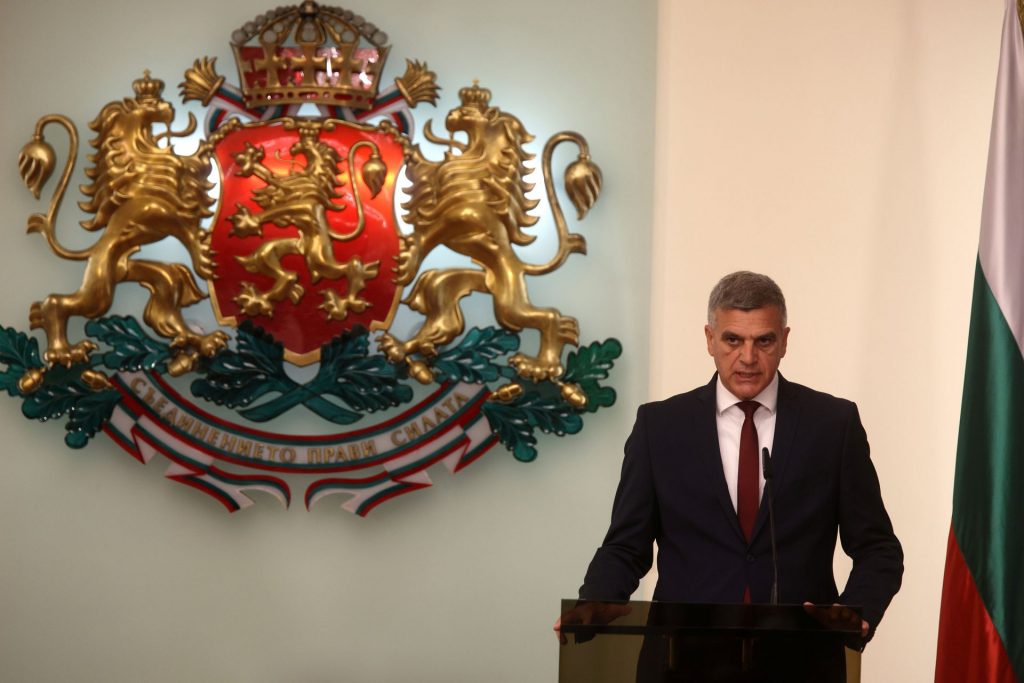
Bulgaria sets new polls in July
Bulgarians will go to the polls again in July, three months after the general election of April, as the new parliament failed to form a majority. The Bulgarian President Rumen Radev appointed Stefan Yanev, his close adviser, as caretaker prime minister. Bulgaria plunged into a political crisis after the conservative GERB party of former PM Boyko Borisov had come first in the election but failed to win a majority. Borisov’s former government is under scrutiny after claims that opposition politicians were wiretapped under his term in power. The internal troubles of Bulgaria will have a negative impact on the integration process in the Balkans, as the interim government will most probably maintain a veto on North Macedonia accession talks.
Reuters, Euronews
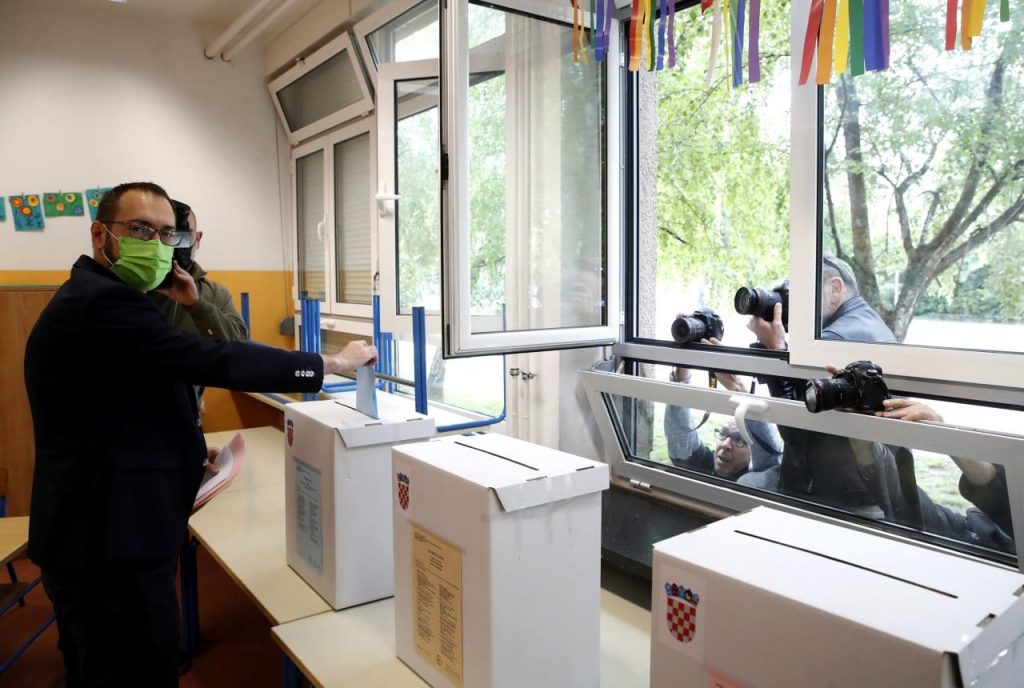
Croatia ruling party wins local elections, but not Zagreb
Croatia held important administrative elections on May 16. The polls confirmed the Croatian Democratic Union (HDZ, conservatives) of Croatian Prime Minister Andrej Plenkovic as the strongest political force in the country, EU member since 2013. However, the HDZ lost the most crucial political battle for the capital, Zagreb, where a runoff will be held on May 30. In Zagreb, leftist and environmentalist Tomislav Tomasevic, leader of the movement Mozemo (We can), will compete against Miroslav Skoro, the head of a nationalist right party. Another runoff vote will be held in other important cities in Croatia, including Split, Osijek and Rijeka.
The Associated Press, Euronews
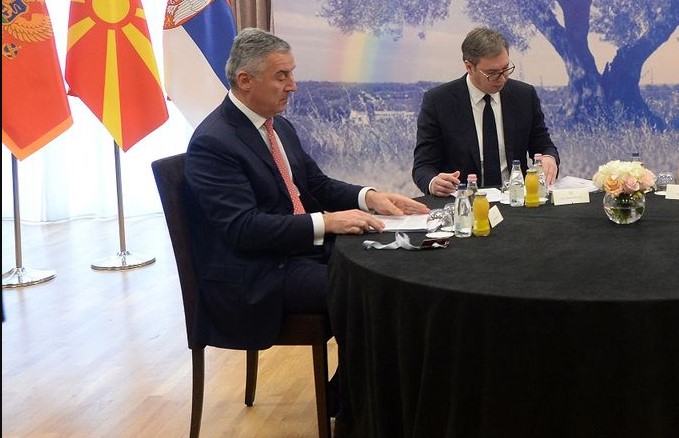
Serbia and Montenegro experience a decline in democracy score
According to the latest Nations in Transit report by Freedom House, Hungary and Poland, together with Serbia and Montenegro, have experienced a significant decline in the quality of their democratic systems. The four countries have recorded a significant decline in their “democracy scores”, an index that measures progress in the democratisation process in 29 countries in Central Europe and Central Asia. In Serbia, in particular, “President Aleksandar Vucic has overseen the mainstreaming of smear campaigns and pro-government propaganda”, the study noted. At the same time, in Montenegro, “an important transfer of power took place” recently through the general elections, but it is still unclear if it will lead “to an improvement in democratic institutions”. Hungary, Montenegro, and Serbia have “recently been reclassified as hybrid regimes”, the report recalled.
Nations in Transit 2021
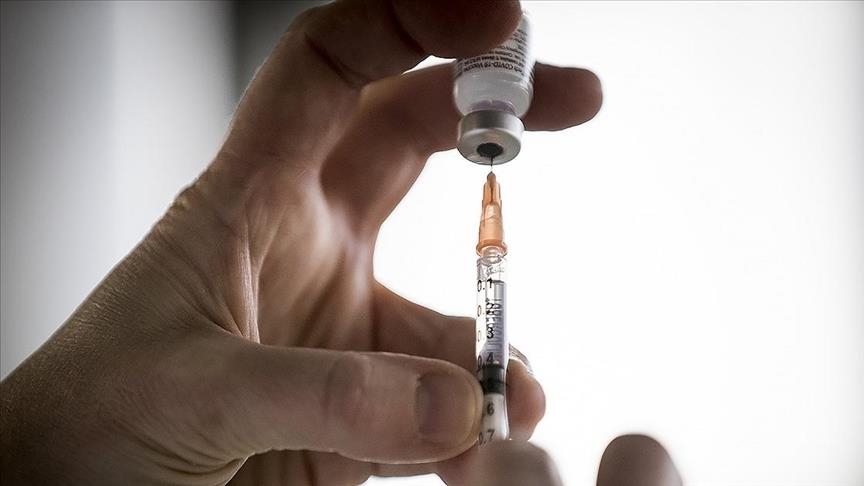
EU-funded vaccines arriving in the region
The European Union started deliveries of vaccines to the Western Balkans in May. “A total of 651.000 BioNTech/Pfizer doses will keep being delivered from May until the end of August, ensuring vaccination of medical workers and other vulnerable groups across the region”, the EU said. “Since the beginning of the pandemic, we have deployed over €3,3 billion in the region. For us, it has always been a primary goal to help to keep the healthcare systems of the Western Balkans up and running”, Commissioner Oliver Varhelyi remarked. Balkan countries have struggled to get vaccines, except Serbia, which relied on millions of doses of the Chinese Sinopharm and the Russian Sputnik V. Following in Belgrade’s footsteps, other nations in the region have been turning to China and Russia in the past months.
European Union External Actions Service, European Commission, The Associated Press
Monthly Analysis
18 YEARS AFTER THESSALONIKI,
“DEEP DISAPPOINTMENT” IN ENLARGEMENT
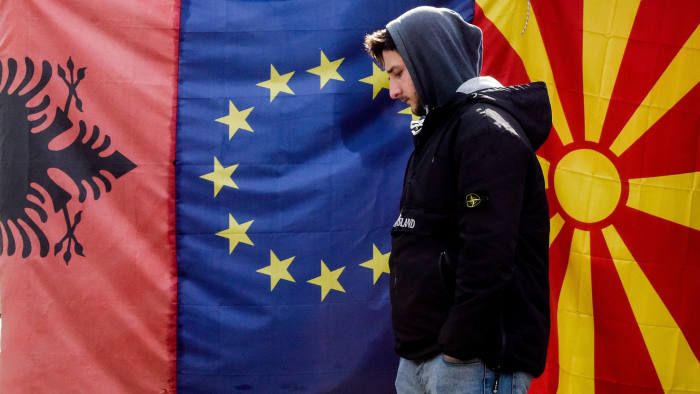
The delays in the integration process and the EU accession strategy and the perception of sluggish delivery of vaccines from the European Union have exacerbated an already robust sense of disillusionment towards enlargement in the Western Balkans. And the EU is aware that losing momentum in the enlargement process could lead to more instability in the region and beyond.
The scenario, connected with potential risks of an increased geopolitical influence of external power in the region, was confirmed by an internal document distributed at the European Union Council this month. A non-paper on “EU reinforced engagement in the Western Balkans”, sent to the foreign ministers of the 27 EU member countries, warned that “the people in the region are experiencing a sense of deep disappointment in the enlargement process”.
There are several reasons behind the disillusionment that permeates the region, the paper noted. Among them, the delays in the opening of accession negotiations with Albania and North Macedonia, countries that underwent painful reforms to achieve the goal, but are blocked by the scepticism of some EU member countries and by a Bulgarian veto.
Furthermore, people in the region are disillusioned due to the slow pace in the integration process of Serbia, Montenegro, Kosovo and Bosnia and Herzegovina, the latter two still potential candidates, and by the uncertainties around the dialogue between Serbia and Kosovo.
The “perception of tardy EU delivery of the COVID-19 vaccines has further fed a narrative of disillusionment” this year, the non-paper noted, recalling that the EU “treated the partners in a privileged manner, giving them access to several initiatives normally reserved for member states” during the pandemic. However, the lack of vaccines in the region has led several countries, firstly Serbia, to turn to Russia and China to get millions of doses, additionally fuelling the external actors’ grip on the Balkans.
There is a concerning and widespread “perception in the Western Balkans that the prospect of accession is receding and that European aspirations are lost under a complex set of conditions and procedures that keeps the Western Balkans locked into a Sisyphean destiny”, the non-paper reads.
On the other hand, the region is not lost, with public opinion across the region still favouring EU accession. A study by the think tank BiEPAG–European Fund for the Balkans earlier this year confirmed this perception, with a survey revealing that a vast majority of citizens of Albania, Bosnia and Herzegovina, Kosovo, Montenegro, North Macedonia and Serbia are in favour of their country joining the EU. However, 58% of people in Albania, 75% in Bosnia and Herzegovina, 40% in Kosovo, 49% in Montenegro, 47% in North Macedonia and 45% in Serbia stated that they are dissatisfied with the progress in the EU integration process.
The study noted that people in the region are aware that their leaderships also have some part of responsibility in the slow integration process, citing “poor situation in institutions and state, inadequate laws and corruption” and “inadequate policies” as the gaps to work on.
The Insight Angle
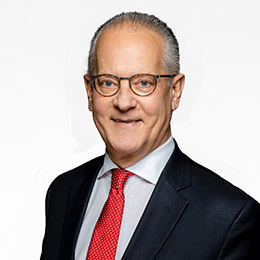
IVAN VEJVODA
Director of Europe’s Futures - Ideas for Action, and Permanent Fellow,
EU ministers focused once again, after almost two years, on the Balkans at the last EU Council of Foreign Affairs. Can we expect some acceleration in the integration process?
Europe has realised that the gap of two years in the Euro-Atlantic integration was not propitious and that the EU needed to come back and become more engaged. This is a very positive sign, and the messages that are coming from Brussels and from High Representative Josep Borrell are encouraging. I think this was also prompted by the fact that other actors have used this gap to establish a foothold in the Western Balkans.
What are the main risks of leaving the Western Balkans isolated from the EU?
The European Union has been confronted over the past decade and a half with the economic and financial crisis, the migration crisis, the crisis of the sovereign debt and the euro, the Russian actions in Ukraine and the pandemic. The fact that attention to the Western Balkans has been waning gave others the possibility of coming in and engaging in the region. But it is very important to say that the EU has never neglected its strategic goal of integrating the Western Balkans since the Thessaloniki summit of June 2003, when these countries were invited to join.
The Thessaloniki summit was held 18 years ago. Do you think countries in the Balkans still sincerely want to join the EU, almost two decades later?
I think they do. All the countries in the Western Balkans have clearly stated that their strategic goal is to become members of the Euro-Atlantic community. They all want to join the EU, they all want to join NATO, except Serbia, who wants to remain neutral. In that regard nothing has changed, as nothing has changed in Brussels regarding the invitation to become members. Secondly, you see that the EU remains steadfastly the main partner in economic trade and investment terms. What has changed is the pace of integration and of democratic reform processes in the aspiring countries. Certainly, 18 years have been a long time and that has created a certain fatigue on both sides, but that doesn’t change the strategic orientation. Last but not least, if we were to have referenda in all six countries now, we would have very clear majorities of people who decide to join the EU because people realise that it is better to become members of the biggest club in the neighbourhood than to remain small countries out of it.
You mentioned some external actors present in the Balkans. What are the main geopolitical goals of Russia, China and others in the region?
Russia, China, Turkey and possibly the United Arab Emirates have different agendas. China’s goal is part of a grand scheme called “The Belt and Road Initiative”. It’s a very long-term goal, where China wants to seek greater influence in the world and to present its way of doing things. I think it’s a global threat to an internationally liberal rules-based order. China in that regard has made a lot of investments in infrastructure in a variety of countries and there is one aspect that is important: all the countries in the Balkans need infrastructure — highways, railroads, bridges. The European Union and the Western world have not engaged in investments in infrastructure in the Balkans, which has given space to China. Russia wants to delay the obvious, namely that these become EU members and it is engaging in a role of spoiler to show the weaknesses of the Euro-Atlantic community.
Half of the countries in the Western Balkans are also part of NATO. Do you think the rest should follow the same path?
Three countries are now full members of NATO — Albania, Montenegro and North Macedonia. When we think of Euro-Atlantic integration we always need to remind ourselves that half of the countries in the region have already joined. And that the other three are also in very close relations with NATO. NATO is present in Kosovo and Bosnia and Herzegovina, while Serbia too has very developed relationships with it, even if it is not seeking full membership. This dimension is extremely important in terms of security and defence. And I believe the pursuit of NATO membership is a positive thing.

Stefano Giantin
Journalist based in the Balkans since 2005, he covers Central- and Eastern Europe for a wide range of media outlets, including the Italian national news agency ANSA, and the dailies La Stampa and Il Piccolo.

